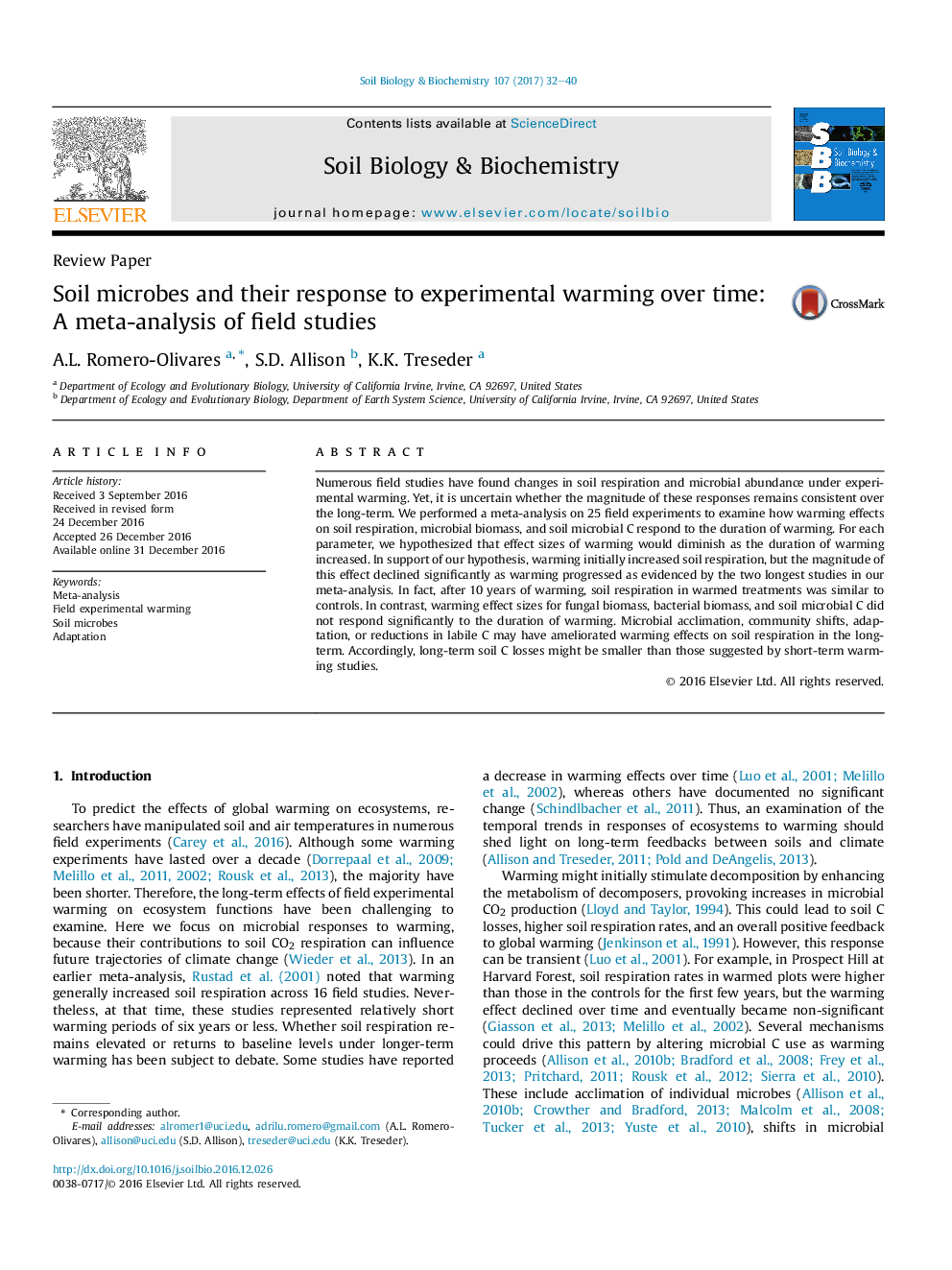| Article ID | Journal | Published Year | Pages | File Type |
|---|---|---|---|---|
| 5516411 | Soil Biology and Biochemistry | 2017 | 9 Pages |
•Warming effects on soil respiration decreases as duration of warming increases.•Long-term warming response of soil respiration is lower than short-term response.•Decreases in warming response to soil respiration might be attributed to microbes.•We encourage long-term study of the soil microbes' response to warming.
Numerous field studies have found changes in soil respiration and microbial abundance under experimental warming. Yet, it is uncertain whether the magnitude of these responses remains consistent over the long-term. We performed a meta-analysis on 25 field experiments to examine how warming effects on soil respiration, microbial biomass, and soil microbial C respond to the duration of warming. For each parameter, we hypothesized that effect sizes of warming would diminish as the duration of warming increased. In support of our hypothesis, warming initially increased soil respiration, but the magnitude of this effect declined significantly as warming progressed as evidenced by the two longest studies in our meta-analysis. In fact, after 10 years of warming, soil respiration in warmed treatments was similar to controls. In contrast, warming effect sizes for fungal biomass, bacterial biomass, and soil microbial C did not respond significantly to the duration of warming. Microbial acclimation, community shifts, adaptation, or reductions in labile C may have ameliorated warming effects on soil respiration in the long-term. Accordingly, long-term soil C losses might be smaller than those suggested by short-term warming studies.
